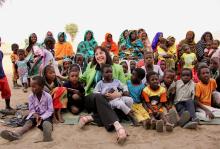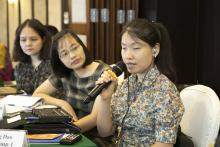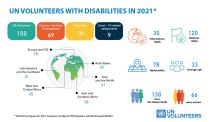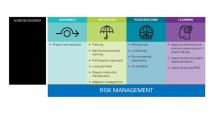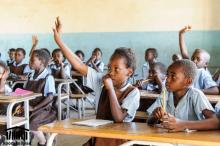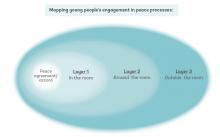Translating Hope into Action: 25 Years of Protecting Children from the Impact of Conflict
We have come a long way in ensuring that all children, including those affected by conflict, are better protected from the ravages of war. But we must do more.
Calling the United Nations System to Action on Disability Inclusion
When it comes to diversity and inclusion, we must challenge ourselves to push beyond our historical focus on gender and geography. We must address the inclusion of other underrepresented groups more intentionally in our workforce, including persons with disabilities.
Overcoming Barriers to Inclusion through Volunteerism
Leaving no one behind is not an empty mantra; it is a statement of our collective responsibility and accountability.
Strengthening Family Relationships Improves Children’s Well-Being
Given all the additional challenges created by the COVID-19 pandemic, we should recognize and focus on the need to strengthen and mend family relationships.
Integrating Security into Sustainable Development to Build More Peaceful Societies
The development of conflict-sensitive approaches highlights how sustainable development can be made more effective through a consideration of peace and security.
On Our Path to Global COVID-19 Recovery, We Must Focus on Literacy
As we find ourselves in the greatest education crisis of our generation, literacy interventions can act as an antidote to the long-term effects of COVID-19.
A World in Crisis Needs International Cooperation
Despite the clear evidence that investing in disaster risk reduction (DRR) brings great benefits, only a small fraction of international cooperation is being channeled to support such efforts.
The Pandemic Accelerant: How COVID-19 Advanced Our Mental Health Priorities
There is no health without mental health, and we must address physical and mental wellness in equal measure.
Celebrating the Twenty-Fifth Anniversary of the International Tribunal for the Law of the Sea
Our oceans have never played a more significant role in all spheres of human life and endeavour as they do today. It is only through sound governance of the oceans that we will continue to reap the benefits of this common good while preserving it for generations to come.
The Centrality of Youth-Inclusive Peace Processes
When young people engage and interconnect within all three layers of negotiations—inside, around and outside the room—they have more positive influence in the development of agreements than if they are simply provided a seat at the table.



